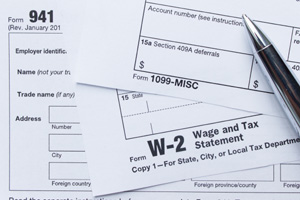8 Signs Your Employer May Be Misclassifying You as a Contract Worker
 The line between employee and contract worker can become blurry in today’s workforce. While both roles have distinct differences, some employers may intentionally or unintentionally misclassify employees as contract workers to reduce costs or avoid providing benefits. Sometimes, an employee’s classification should legally change, but an employer can forget to update information as responsibilities evolve.
The line between employee and contract worker can become blurry in today’s workforce. While both roles have distinct differences, some employers may intentionally or unintentionally misclassify employees as contract workers to reduce costs or avoid providing benefits. Sometimes, an employee’s classification should legally change, but an employer can forget to update information as responsibilities evolve.
Misclassification can quickly lead to lost wages, denied benefits, and a lack of workplace protections. Understanding the signs of misclassification is essential to ensure your rights are not compromised. Please reach out to Hodges & Foty, LLP if you want to take legal action against your employer. You can contact us by calling (713) 523-0001 or visiting our contact form.
8 Signs You May Be Misclassified as a Contract Worker
There are several potential indicators that you have been misclassified as a contract worker, such as:
Incorrect Tax Forms
Most contract employees will receive a Form 1099, meaning they are responsible for their own tax payments and reporting to the IRS. However, if you received a W-2 form and your employer withholds your taxes from your pay, you should likely be classified as an employee.
Control Over Work
Independent contractors generally determine their own work schedules and methods, whereas employees do not have this same level of control. Employers generally tell employees when, where, and how they are to perform their work-related duties.
Equipment
If an employer provides any equipment or tools necessary for the job, this indicates an employee relationship. Independent contractors will typically provide their own tools and equipment to complete their tasks.
Training
Most jobs are responsible for training employees in the processes and expectations associated with the work. However, independent contractors are expected to understand how to use their skills with less guidance. Independent contractors are more likely to be responsible for costs related to new training experiences, while an employer may cover employee training.
Working Exclusivity
Independent contractors are generally free to work with as many clients as possible. On the other hand, employees are more likely to be restricted from working with other businesses or clients, especially when work involves a competitor.
Controlling Finances
Your relationship with your employer may also depend on who controls the finances. If you are an independent contractor, you are more likely to control your own rates. However, employees are less likely to have this control. Instead, employers will control an employee’s rates, reimbursement, and other payment terms.
Using a Company Email
Most independent contractors will use their own email addresses for their work, while employees are much more likely to use an email provided by the company. Using a company email address indicates that an individual’s integration into the company has become essential for the business to function, meaning the person should be classified as an employee.
Working Continuously for Longer Periods
Those classified as employees can be around indefinitely, from decades to just a few days. However, this range is less common for contracted workers, who will normally not work on a project for over 12 months. If an employer controls your termination without causation, you should be classified as an employee.
Protect Your Rights as an Employee: Contact Hodges & Foty, LLP to Hold Your Employer Accountable for Misclassification
Misclassification as a contract worker can have serious financial and legal consequences. At Hodges & Foty, LLP, we understand the complexities of employment classifications and their impact on your rights and benefits. With over 40 years of combined experience and recognition from top legal organizations, we are committed to helping individuals who may have been misclassified. Our attorneys can evaluate your case and assist you in holding your employer accountable. We also have extensive trial experience.
If you believe your employer has misclassified you as a contract worker, you deserve the opportunity to have your situation reviewed by experienced professionals. Our team is dedicated to providing clear guidance and practical legal support to protect your rights. Contact us at (713) 523-0001 for a free consultation or visit our contact form to discuss your case today.


